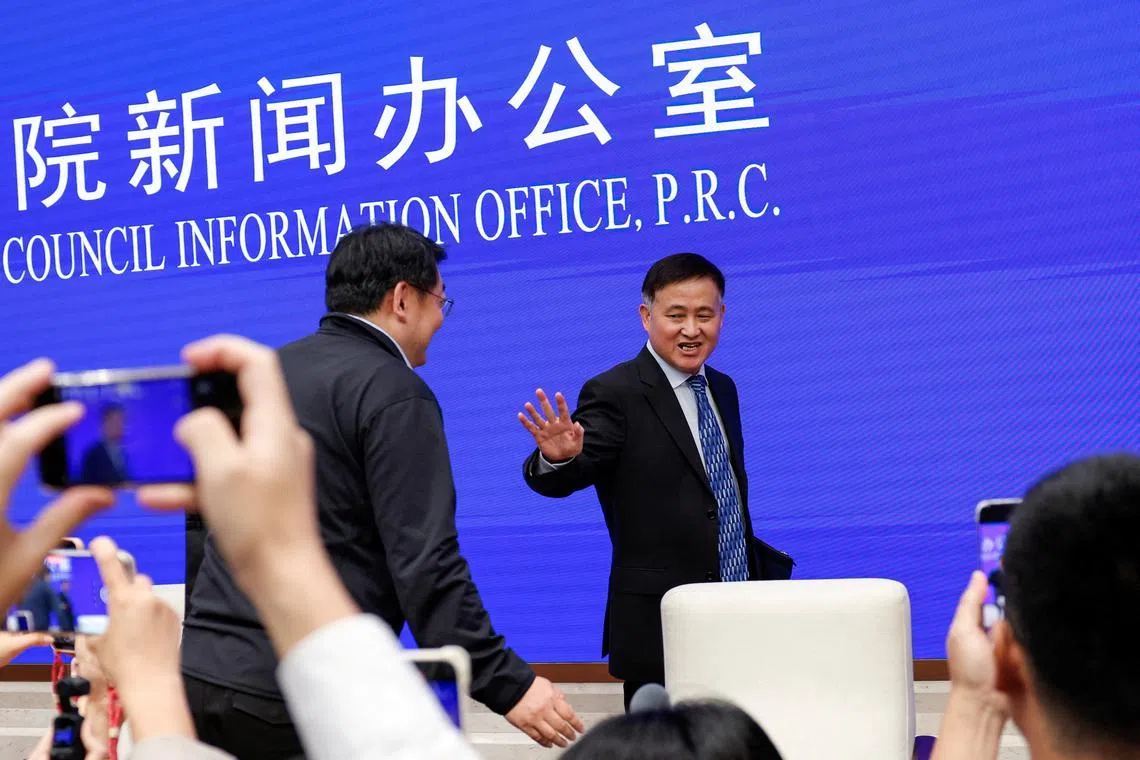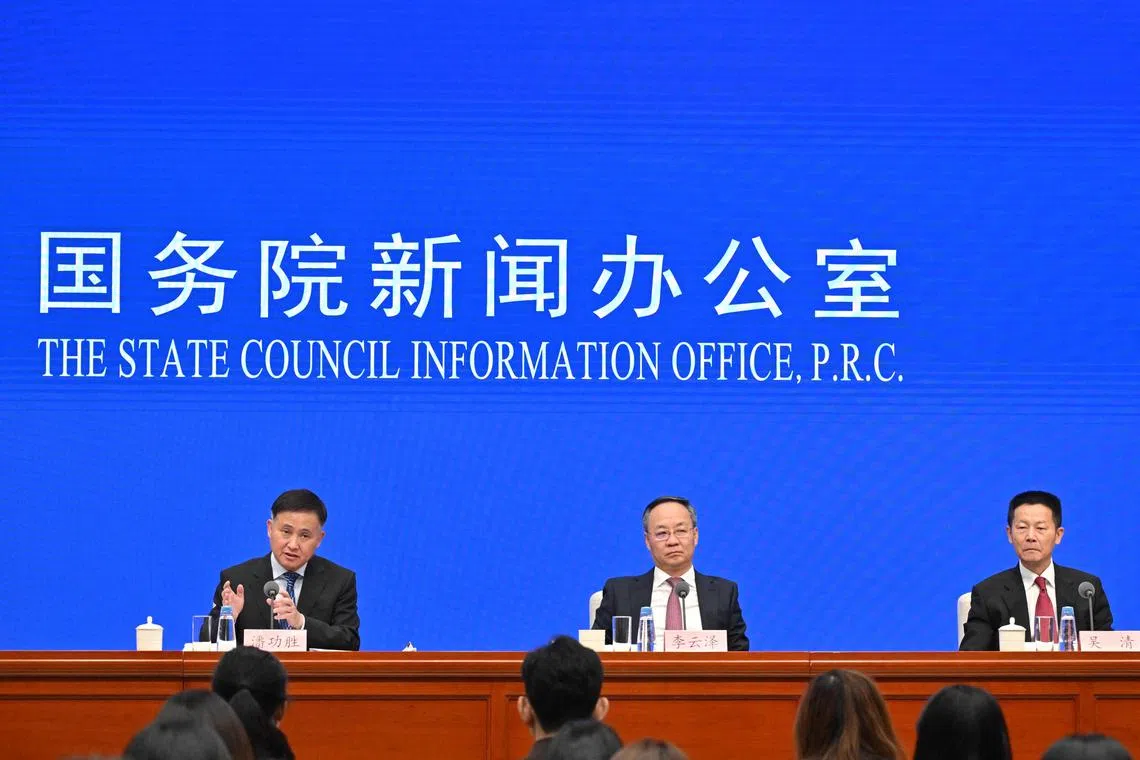China’s financial regulators announce raft of policy measures to support economy
Sign up now: Get insights on Asia's fast-moving developments

People's Bank of China (PBOC) Governor Pan Gongsheng leaves after a press conference in Beijing, China.
PHOTO: REUTERS
SHENZHEN - China’s financial regulators have announced a broad raft of measures to support a slowing economy, aimed at boosting liquidity and lowering borrowing costs for individuals and companies alike.
This comes as protracted deflationary pressures
The measures include cuts to a key policy interest rate and existing mortgage rates, reductions to banks’ cash reserve requirements, lower down payments for second homes and more liquidity for the stock market.
They were announced on Sept 24 at a rare press conference in Beijing by central bank chief Pan Gongsheng, alongside the heads of the National Administration of Financial Regulation and the China Securities Regulatory Commission.
The coordinated policy salvo, the magnitude of which exceeded expectations, “will give an immediate lift to sentiment, which is a positive first step”, said Mr Xu Tianchen, a senior economist at the Economist Intelligence Unit in Beijing. “This at least suggests that the government is serious about backstopping the economy and protecting the livelihoods of people,” he added.
Mr Pan said cash holdings which commercial banks are required to keep in reserve, also known as the reserve requirement ratio, will drop 0.5 percentage point in the near future. This will make available an additional one trillion yuan (S$183 billion) for lending.
The central bank will also cut a key short-term policy rate
On the property front, the central bank will provide guidance for interest rate cuts on existing mortgages by half a percentage point on average, in a move that Mr Pan estimates will save some 50 million households about 150 billion yuan in interest payments per year.
Second-time home buyers will also enjoy lower minimum down-payment ratios – of 15 per cent, from 25 per cent – as is the case for first-timers.
To boost the capital market, the central bank will set up a 500 billion yuan swap facility that allows eligible institutions to pledge assets in exchange for liquidity to buy stocks.
Separately, a 300 billion yuan refinancing facility will encourage banks to provide loans to listed companies and major shareholders to buy back or increase their stakes.
The unveiling of the stimulus measures boosted oil prices as well as stock markets worldwide, wire agency Agence France-Presse reported, with the Hong Kong and Shanghai stock markets up by more than 4 per cent by closing time on Sept 24.

Mr Pan Gongsheng (left), governor of the People’s Bank of China, Mr Li Yunze (centre), Minister of the National Financial Regulatory Administration, and Mr Wu Qing, chairman of the China Securities Regulatory Commission, at a press conference at China’s State Council Information office.
PHOTO: AFP
China’s latest monetary support measures come as analysts question whether it can attain its growth target of about 5 per cent in 2024 amid stubbornly weak domestic demand. Its economic growth slowed to 4.7 per cent year on year in the second quarter, while key indicators such as industrial output, retail sales and real estate underwhelmed in August.
China is due to report third-quarter GDP results on Oct 18.
Maybank economist Erica Tay estimates that even with the latest monetary-easing measures – China’s “most concerted” since the start of 2023 – the country’s GDP will grow at 4.8 per cent in 2024.
The bank’s director of macro research pointed out that as monetary policy works with a lag, the stimulus package was likely too late to have a significant effect on GDP in the remaining three months of the year – although it could boost growth marginally in 2025.
More fundamentally, analysts underscored the need for more fiscal stimulus – government spending or tax cuts – to better address weak demand in the Chinese economy.
“While monetary easing is welcome and important, it alone will not be enough to backstop the economy, given the low appetite for borrowing,” said the EIU’s Mr Xu.
Dr Zhang Zhiwei, president and chief economist at Pinpoint Asset Management, said: “Fiscal policy is missing in today’s press conference. I think fiscal policy is crucial and indispensable if the government wants to turn around the weak economic momentum.”
Said Maybank’s Ms Tay: “What the economy needs now is for the government to step up as spender, not lender, of the last resort.”


